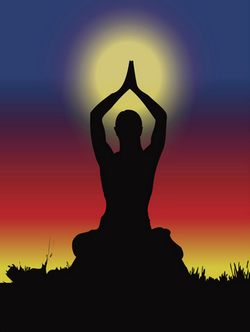"Psychonaut". It is a very cool word. The short definition: A psychonaut is someone who explores altered states of consciousness, unique states of mind and possibilities outside the mind altogether. It can apply to test subjects involved in the scientific exploration of psychic phenomenon. It can as well apply to the scientists doing the research. You can be a psychonaut at home while seeking to understand clairvoyance. You can be a psychonaut as you explore the mind-nature connection as you work on a magick spell. There is just no end to the applications of this word.
"Psychonaut", the word itself, is a combination of the Greek words "psyche", meaning "spirit/mind," and "nautes", meaning "sailor/navigator". Therefore, a psychonaut is someone who navigates and explores the spirit or mind. Alternatively, it could be used to refer to someone who explores other states of existence by using their spirit or mind as a means of travel.
The word ‘psychonaut’ is usually attributed to German author Ernst Jünger. He created the word in 1970 to describe what Arthur Heffter was doing with psychedelic drugs – pushing the boundaries of consciousness. Because the word psychonaut was first used to describe someone using hallucinogens to expand and explore alternative states of consciousness there remains a slight stigma on the word psychonaut. The word ‘psychonaut’ has become tied to hallucinogenic drugs and those experimenting with them. However, psychonaut is too useful a word to be limited to just one type of conscious altering method.
Fortunately, Psychologist Dr. Elliot Cohen of Leeds Metropolitan University expanded the concept of a psychonaut with a broader definition: "… to study and explore consciousness (including the unconscious) and altered states of consciousness; it rests on the realization that to study consciousness is to transform it". Dr. Cohen considered psychonauts to also be those whose were committed to spiritual pursues – many of these pursuits having a long tradition with historical roots in cultures worldwide. American Buddhist Robert Thurman and author describes a Tibetan Buddhist master as a psychonaut, saying, "Tibetan lamas could be called psychonauts, since they journey across the frontiers of death into the in-between realm". The word ‘psychonaut’ spawned a whole new area of research and study called ‘psychonautics’ and it really is an area of study that should (and does) include far more than adventures in pharmaceuticals.
 Yes, psychonaut is word deserving of an expanded definition and broader application. Psychonauts are explorers of mystical territory, of realms and states of existence other than our usual five-sense, four-dimensional reality. While there may not be a universal consensus on where exactly where it is that psychonauts go, what unique states of mind are involved, there are nevertheless ancient and widely-practiced methods that seem to achieve the effect of expanded awareness. That is a fact. How could someone not be considered a psychonaut that is exploring psychic connections with those who have passed on. Or, the Zen Buddhist utilizing hours of meditation in order to achieve satori, or ultimate enlightenment.
Yes, psychonaut is word deserving of an expanded definition and broader application. Psychonauts are explorers of mystical territory, of realms and states of existence other than our usual five-sense, four-dimensional reality. While there may not be a universal consensus on where exactly where it is that psychonauts go, what unique states of mind are involved, there are nevertheless ancient and widely-practiced methods that seem to achieve the effect of expanded awareness. That is a fact. How could someone not be considered a psychonaut that is exploring psychic connections with those who have passed on. Or, the Zen Buddhist utilizing hours of meditation in order to achieve satori, or ultimate enlightenment.
So, there seem to be two recognized categories of psychonauts: Those who utilize some chemical means to alter one’s state of mind and those who use more spiritual methods, meditation being the most noted method. Substances known as hallucinogens, psychedelics, or entheogens have been enabling human beings to take psychonautic journeys for millennia. We in the civilized West tend to dismiss the shaman of native cultures who utilize natural substances to journey to alternative realities and alternative states of mind. The West has struggled with the use of drugs, both natural and man-made, for decades. However, this is not the fault of native shaman are doing what is culturally acceptable for them for thousands of years.
The other, larger and vastly overlooked psychonauts are those utilizing more spiritual tools such and meditation, mantras and prayer.
Throughout history, in the East and the West, there have been those who have plunged into altered states of consciousness by using deep states of meditation and prayer. Mahayana Buddhist sutras are a great example of the types of visions and experiences that are possible by proficient meditators. There are many stories involving Saints, such as Saint Francis of Assisi, where deep prayer has resulted in unique experiences with reality. In fact, almost every religion in the world seems to have found some method(s) for achieving altered states of mind and/or breaking the grip of purely self-centered material thing. There certainly is no shortage of accounts by mystics describing these states.
Furthermore, being the resourceful creatures that we are, humans quickly devised numerous other methods for having these types of alternative experiences once we realized that we were capable of them. Practices such as drumming, humming, starvation, sleep-deprivation, hypnosis, binaural beats, cranial electrotherapy stimulation and deep prayer have all been known to bring on altered states of consciousness. Many of these methods seem to create an expanded understanding of ‘reality’ that remains long after the method of stimulation (or de-stimulation) has stopped.
Then there are entire groups who have been forced by circumstance to become psychonauts. For example, those who have had out-of-body experiences; near death experiences; encounters with ghosts; those who’ve discovered clairvoyant abilities within themselves; people who’ve had deep spiritual experiences that they have difficulty understanding. An excellent example of this is the noted doctor and neroscientist who felt was a scientist who had discovered heaven when he passed through an inexplicable near-death experience which completely transformed his perception of ‘reality’.
Say it Loud! I’m a Psychonaut and I’m Proud!
A psychonaut does not have to be a religious recluse with no ties to the ordinary world. Neither does a psychonaut have to seek out the latest hallucinogenic to hopefully kick-start his/her alternative experiences of reality. Literally anybody can be a psychonaut, because everyone is capable of undertaking an inward exploration. Some people may be more prone to experiencing altered states of consciousness than others. There is nothing stopping you from taking up, say, meditation, and seeing where it takes you. Or, experimenting with scrying. Or, taking classes in metaphysics or Reiki or some other mentally or physically challenging discipline that requires going beyond who one thinks is possible.
The desire to experience and explore altered states of consciousness is argued by some to be a basic human impulse. These altered states of consciousness do not need to be earth shattering. They can be small, simple, and yet powerful enough to shift our consciousness about what is true. Many in the spiritual community, from Christians to Buddhists to Agnostics, to native peoples have argued that if we do not seek out more than just this material world, then the alternative perspectives of ‘reality’ will make itself known, forcing an individual to at least explore alternative thinking and states of mind. If we naturally have this capacity to experience more than just everyday, material reality, then we should to be asking the question: "Why do we have this capacity to think ‘outside-the-box’ and experience possible paranormal events if not to push the boundaries of who we are and explore beyond a limited sense of what is real?"
While science is showing us more and more every day about the outer, physical world, perhaps we’ve only scratched the surface of what’s possible when we instead turn within. This process as already begun within science itself. How can the scientific concepts such as, "nothing is true until it happens … and anything can happen" or the ‘God particle’ be explored on the human level expect by psychonauts? Now could Einstein not be considered a psychonaut when he largely worked out his ground breaking ideas not in mathematics, but in his imagination. Einstein often applied mathematics after he had traveled into another world where he imagined how the universe really worked. Math was his proof that where he traveled was real. Einstein himself stated, "The most beautiful and profound emotion we can experience is the sensation of the mystical. It is the sower of all true science. He to whom this emotion is a stranger, who can no longer wonder and stand rapt in awe, is good as dead.".
So, go ahead, call yourself a psychonaut if you are willing to step out of this everyday, limited world and explore alternative possibilities – both within and without the mind. Psychonaut is just too big a word, too good a word, to be limited to rock band names, magick, video games and the few who utilize psychedelics in hopes of connecting with something greater than themselves. The word really belongs to all those pushing the boundaries of what is real, who they are, and what is possible … for the good of all mankind, eh?
If you are interested in chatting with those who psychonautic adventures happen everyday, check out Psychic Chat. It is free to try. You might also want to check out this psychic chatroom where there is live chat, webcams and phone options. Or, just call 1-800-340-8374 and ask to speak to a quality psychic reader.
Interesting Resources:
